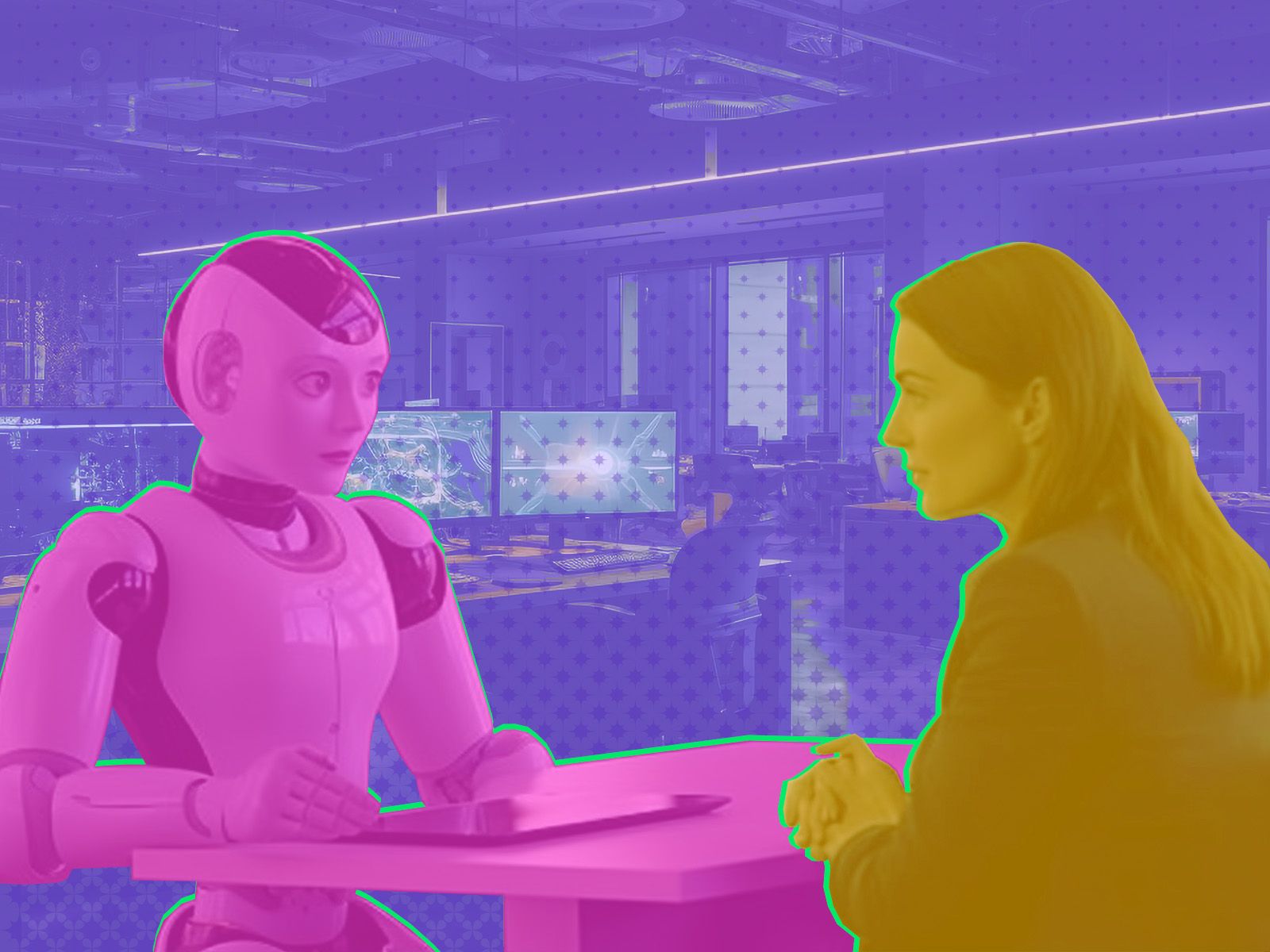AI in Hiring, the Workplace, and Enterprise
AI in Hiring, the Workplace, and Enterprise
- Last Updated: March 25, 2025
AI For All
- Last Updated: March 25, 2025



Artificial Intelligence (AI) has revolutionized various aspects of our lives, and its impact on enterprise operations cannot be overstated. From automating mundane tasks to providing valuable insights, AI has become instrumental in enhancing efficiency and decision-making processes. In the world of human resources (HR) and talent acquisition, organizations are leveraging the power of AI to uncover the best candidates and improve the overall hiring process.
Automated Decision-Making
The initial wave of AI adoption in enterprise primarily focused on automating routine tasks and improving operational efficiency. This included automated decision-making for processes such as routing and automated processing in a variety of industries. However, when it came to talent screening, enrollment, and attraction, companies encountered unique challenges.
In the talent acquisition space, companies started exploring AI-based tools for candidate screening, video interviewing, and candidate scoring. While these technologies promised increased efficiency, they also raised questions about algorithmic fairness, explainability, and potential bias. Companies realized that automated decision-making, without proper considerations, could lead to unintended consequences and possibly biased outcomes.
The Shift Towards Human Expertise in Enterprise AI
In recent years, there has been a noticeable shift in enterprise AI adoption, particularly in the HR and talent acquisition domains. Rather than relying solely on automated processing and decision-making, organizations are now seeking a balance between AI-driven insights and human expertise.
The focus has shifted from providing a black-and-white score for candidates to bringing individuals to the precipice of action. Companies are now placing importance on understanding the implications and contextual meaning behind AI insights. Leaders within organizations are being encouraged to apply their human judgment and expertise, complemented by AI insights, while making critical talent-related decisions.
The Emerging Role of AI in Talent Screening
One company at the forefront of leveraging AI for talent screening is Fama Technologies. By tapping into the world's richest data stream — the online digital identity of individuals — Fama aims to help organizations answer the question of how individuals might behave when they join a company. Instead of strictly assessing qualifications, Fama focuses on the quality of an individual's behavior and their online presence.
This approach allows Fama to identify signs of potential misconduct, manage downside risk, and evaluate professional traits and competencies based on an individual's digital footprint. By leveraging AI, Fama provides organizations with valuable insights to make informed hiring decisions, helping them hire great people more easily.
Navigating the Challenges of AI Adoption
As organizations embrace AI and its potential in HR and talent acquisition, they need to be prepared for key challenges that come with it. Companies should consider these factors to increase the chances of successful AI adoption:
- Strategic Alignment: Organizations must align their AI initiatives with strategic objectives. It's crucial to identify problem areas within the organization and determine how AI can bring value and solve those challenges.
- Data Management and Bias Mitigation: Ensuring data quality and diversity is essential for minimizing bias and achieving fairness in AI models. Regular audits and continuous monitoring are necessary to identify and address biases. Additionally, having diverse teams building AI technologies can help mitigate inherent biases.
- Clear Expectations and Assessments: Clearly defining the expected outcomes and time horizons for AI experimentation is vital. Companies should partner with AI vendors that can provide transparency and clear deliverables, allowing for accurate assessments of the technology's value.
- Expertise and Talent Development: Organizations need professionals who can understand AI technologies, assess their implications, and ask the right questions. Investing in workforce development and partnerships with AI experts can help companies navigate the complexities of AI adoption.
The Future of AI in Enterprise: Embracing Innovation
The future of AI in enterprise holds immense potential for growth and innovation. As technology continues to advance, organizations can harness AI in unprecedented ways to unlock new possibilities. By combining human expertise and AI-driven insights, companies can make more informed decisions and drive strategic growth.
The rapid development of AI leaves us with a crucial piece of advice: be flexible and open to new ideas. Embrace the evolving landscape of AI as it continues to reshape the way we work and make decisions. Cultivate a culture that encourages critical thinking, diverse perspectives, and adaptation. By doing so, companies can position themselves for success and stay at the forefront of technological advancements.
AI is transforming HR and talent acquisition in enterprise, shaping the way businesses hire, screen candidates, and make critical decisions. By adopting AI technologies, organizations can improve their efficiency, mitigate bias, and leverage insights to build successful teams. The evolving landscape of AI requires companies to stay informed, remain adaptable, and navigate the challenges along the way. Embracing the power of AI and human expertise in tandem is the key to unlocking a brighter future for enterprise operations and talent acquisition.
The Most Comprehensive IoT Newsletter for Enterprises
Showcasing the highest-quality content, resources, news, and insights from the world of the Internet of Things. Subscribe to remain informed and up-to-date.
New Podcast Episode

What is Software-Defined Connectivity?
Related Articles





